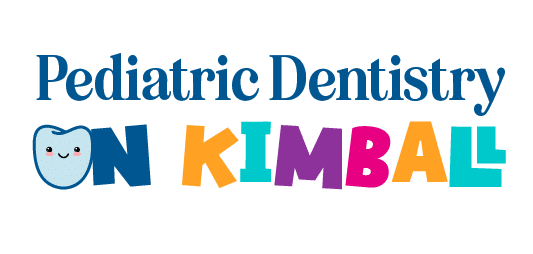As a parent, one of the most important things you can do for your child’s health is to ensure they have a bright, healthy smile. Early tooth decay in children is a common problem, but the good news is that it’s preventable when caught early. Recognizing the signs of early tooth decay can help you take action before it becomes a more serious issue. At Pediatric Dentistry on Kimball in Brooklyn, NY, we’re committed to educating parents and providing proactive care that promotes lasting dental health.
What Causes Tooth Decay to Start in Children?
Tooth decay occurs when bacteria in the mouth feed on the sugars and starches from the foods we eat. These bacteria produce acids that gradually break down the enamel, the protective outer layer of the tooth. Over time, this process can lead to cavities and further damage to the tooth structure.
There are several factors that can contribute to the onset of tooth decay in children:
- Poor Oral Hygiene Habits: Failing to brush and floss regularly allows plaque and bacteria to build up, which leads to decay.
- High-Sugar Diets: Regular consumption of sugary foods and drinks provides bacteria with the fuel they need to produce harmful acids.
- Lack of Fluoride: Fluoride is essential in strengthening tooth enamel and preventing decay. Without it, teeth become more vulnerable.
- Dry Mouth: Certain medications or medical conditions can reduce saliva production, which helps wash away food particles and neutralize acids.
- Family History or Genetics: Some children may be more predisposed to tooth decay due to inherited factors.
What Are the Early Signs of Tooth Decay in Children?
Tooth decay can begin subtly, so it’s important to be aware of the early signs. Watch for these indicators:
- Visual Indicators: Small white spots on the tooth’s surface, signaling early enamel demineralization, which can lead to cavities.
- Behavioral Indicators: Tooth sensitivity, especially when eating hot, cold, or sweet foods, can suggest the beginning of tooth decay.
- Physical Changes: White spots may turn into brown or black spots as decay progresses, indicating more severe enamel erosion.
- Pain: Pain or tenderness around the gums and teeth can indicate that tooth decay has reached a more advanced stage.
Early intervention can stop decay in its tracks, so keep an eye out for these signs to ensure your child’s dental health remains strong.
How Can I Prevent Early Tooth Decay in My Child?
Preventing early tooth decay starts with good habits and regular care. Here are key steps to help protect your child’s smile:
- Good Oral Hygiene Habits: Ensure your child brushes their teeth with fluoride toothpaste twice a day and flosses regularly to remove food particles from between teeth.
- Dietary Recommendations: Limit sugary snacks and drinks, and encourage healthy alternatives like fruits, vegetables, and plenty of water throughout the day.
- Regular Dental Checkups: Schedule dental visits at least twice a year, beginning as early as their first birthday or when the first tooth appears.
- Fluoride Treatments: Fluoride strengthens tooth enamel and helps prevent decay. Professional fluoride treatments at the dentist can offer added protection.
- Sealants: Dental sealants provide extra protection by covering the chewing surfaces of back teeth, preventing cavities caused by plaque and acids.
By establishing healthy habits and visiting the dentist regularly, you can help ensure your child’s teeth stay strong and cavity-free for years to come.
When Should My Child See a Dentist for Tooth Decay?
It’s important to keep track of your child’s oral health and address potential tooth decay as early as possible. Here’s when to schedule a visit:
- Regular Checkups: Start dental visits early, ideally by the time your child’s first tooth appears, to monitor their oral health and detect any early signs of decay.
- Signs That Warrant a Visit: If you notice symptoms like pain, sensitivity, or visible spots on your child’s teeth, it’s time to schedule a dental visit. Early detection can prevent more serious problems.
- When Decay is Advanced: If tooth decay progresses untreated, it may require restorative treatments like fillings, crowns, or root canals. Addressing the issue early can help avoid more complex procedures.
Regular checkups and quick action when signs of tooth decay appear, can help keep your child’s smile healthy and avoid costly or complicated treatments down the road.
What Are the Treatment Options for Early Tooth Decay?
Treating early tooth decay promptly can prevent further damage and preserve your child’s dental health. Here are the treatment options to consider:
- Fluoride Treatments: If caught early, fluoride treatments can help remineralize the enamel and reverse damage before cavities form.
- Fillings: If a cavity has formed, fillings can restore the tooth and prevent further damage. This is typically done in one visit and can be made from tooth-colored materials for a natural look.
- Pulp Treatment: If decay reaches the pulp, more advanced treatments like a root canal or pulpotomy may be necessary to save the tooth.
- Crowns: For severely decayed teeth that can’t be restored with a filling, crowns are used to protect and restore the tooth’s function and appearance.
Addressing tooth decay early with the right treatment can prevent the need for more invasive procedures later on, ensuring your child’s smile stays healthy for years to come.
A Healthy Smile Starts with Early Care: Schedule today!
Tooth decay can happen quickly, but with early detection and the right preventive measures, it can often be avoided or treated with minimal intervention. Regular dental visits, good oral hygiene, and a healthy diet are essential in ensuring your child’s smile stays healthy for years to come. We are here to help you and your child maintain optimal oral health.
If you’re concerned about your child’s oral health? Dr. Lionel Vera and our team are ready to assist you with early tooth decay prevention and treatment. Schedule an appointment with us today at Pediatric Dentistry on Kimball in Brooklyn, NY, and take the first step toward a lifetime of healthy smiles!

Dr. Lionel Vera
Dr. Lionel Vera brings warmth, expertise, and advocacy to Pediatric Dentistry on Kimball as a board-certified pediatric dentist. He earned his dental degree from the University of Puerto Rico, Medical Science Campus, followed by a residency at Kingsbrook Jewish Medical Center, where he honed his skills with children and special needs patients. A Brooklyn-based pediatric dentist since 2018, Dr. Vera blends compassionate care with a strong focus on educating both children and parents about oral health. Dr. Vera’s mission: to inspire a lifetime of healthy smiles through trust, education, and proactive care.

